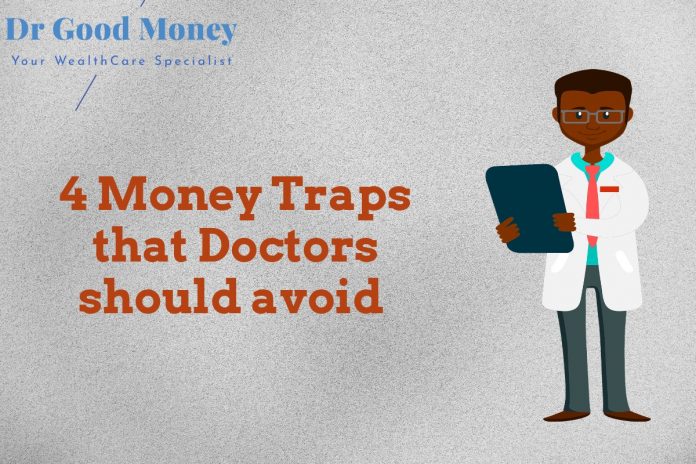Behavior plays a significant role in investments. Those who can control their behavior will win, while those who cannot fall victim to wrong buying and mis-selling.
After all, the job of a seller is to sell. He/She will leave no stone unturned to convince you that the product you are purchasing is the right choice for you. Now, you will have to understand, how and why?
You cannot expect advice from product sellers. If at all it is one, it must be supported by a sound process and reasoning.
Doctors being busy professionals and do not have much of a financial background, fall prey to these mis-sellers very often and regret later.
The purpose of today’s article is to share with you some money traps that you need to be aware of when investing or being pitched an investment product by a salesperson.
1. Safe Investment:
The concept of safety in investments is a myth. All investments carry a certain amount of risk. You must accept this to structure your portfolio towards growth.
FREE Download
YOUR FINANCIAL DATA
RECORD KEEPER
Organize and Collate data at a Single Place for easy Access and Management
You face many risks other than those which are visible to your invested capital, such as inflation that impacts purchasing power, interest rate movements that affect bond prices, a default that impacts your invested capital, and many others. (Also Read: Risk Profiling- the Blood Pressure check before making investments)
Knowing your risk profile, understanding the product and risk inherent will allow you to decide if you are ready to accept the risk, prepare a risk management plan (if possible), have the basics of Financial planning ready, and get started. (Read: 5 Risks Doctors are exposed to and how to manage them?)
2. High/Low Returns:
The future cannot be predicted. Generally, what you are shown or have seen was past performance, and past performance cannot guarantee future returns.
This isn’t a new statement, and most investors know it, but when you’re thinking about returns, it easily gets overlooked.
Processes get derailed, asset allocation gets undermined, risks get ignored, goals go unnoticed…all because you are acting out of GREED or FEAR. (Also Read
See, return on investment is determined mostly by the investment assets the product has an allocation to and the costs intrinsic to it.
You will have a sense of satisfaction with the returns based upon your expectations and understanding of the asset class.
If you look at the past performance (positive or negative), it is easy to get misled. A high past return can lead you to the wrong product, and a recent poor performance can lead you to exit a good product.
It is important to consider reasons other than returns when investing or redeeming. (Also Read: Is it the right time to book profits in stock market investments?)
3. It’s FREE:
It is always enticing to hear the word FREE. No-cost EMIs often push people over their budgets. Why spend money when you can get free advice? The statement “If we do it ourselves, it will be more cost-effective” is very common.
However, the truth is that there are no free lunches, or even dinners or breakfasts. Unless someone is doing charity, why would anyone give you something for free?
Let me ask you, do you prescribe treatment to your patients free of cost? You charge your fees even for a check-up via Video Consulting. Right?
Product sellers advise you for free, which means they get a commission if you buy anything from them.
A Mobile app may entice you to invest for free, so in turn, it may obtain your contact information so it can cross-sell a number of other products to you. You always hear about free insurance from insurance agents.
Even when you do it yourself, You don’t do it for free.
Money and Time are your limited resources. When you save on one, you will end up spending on another. Saving money will result in you spending time. Everything comes down to what you value and want to retain.
Everything has a cost. All you have to do is figure out what it is and how it is expressed.
You shouldn’t mind paying for that if it brings wellness into your life. Just like a patient pays his doctor in exchange for the right treatment and prescription.
(Also Read: How and When Doctors behave like their Patients?)
4. Save tax/tax saving:
Many investors are so frightened by taxes that they end up buying unsuitable products. They prefer only tax-free investments.
Marketers know what you want, and oftentimes creating demand is easier when you don’t know what you want.
In the name of tax savings, you take out a Home Loan, you deposit in NPS because it will also save you tax, you buy Sukanya Samriddhi, PPF because tax-free returns are offered…but does all this contribute to your goals and long-term growth? That you never pay any attention to. (Also Read: Should Doctors opt for NPS?)
You always prefer to save taxes, ignoring the growth aspect.
It is important to design your portfolio based on your goals and the appropriate asset allocation. Rather than the other way around, tax efficiency should be a part of it. (Also Read: Asset Allocation- the Balanced Diet to your Investment Portfolio)
Conclusion:
Money traps are sometimes laid by mis- sellers and many times your mind does the same thing and leads you into the wrong products. You get into this situation when you don’t know why you want to do what you want to do.
It is important to identify what you want to achieve, then create a clear process (How) to get there. Products (what) should come last.
The process will not let you choose the wrong product, and it will not allow you to exit the right product either. Whenever a mistake is made, it will be corrected quickly by the process itself. (Also Read: All-Weather Investment Portfolio for Doctors)






